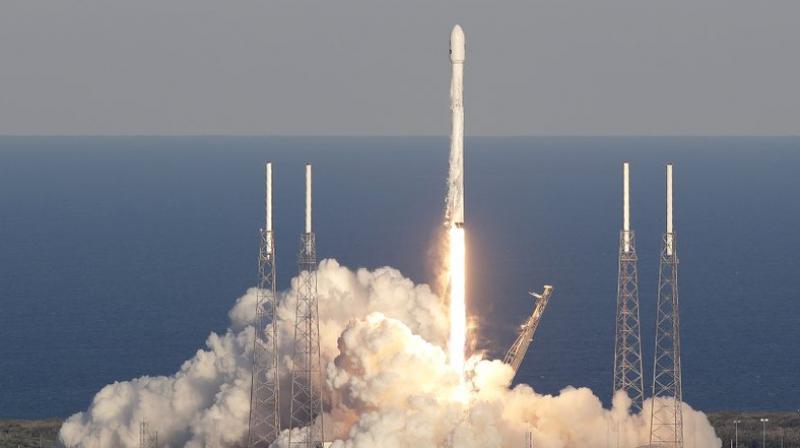SpaceX all set to launch capsule to space station

Elon Musk’s SpaceX was due to launch an unmanned crew capsule atop a Falcon 9 rocket early on Saturday bound for the International Space Station, a major step toward NASA’s goal of reviving the US human spaceflight program this year.
SpaceX’s 16-foot-tall (4.88-meter-) Crew Dragon capsule atop a Falcon 9 rocket was set for lift off from Florida’s Kennedy Space Center at 2:49 a.m. (1049 GMT) local time.
The station’s three-member crew is expected to greet the capsule, carrying 400 pounds of supplies and test equipment, early Sunday morning, NASA said. During its five-day stay, US astronaut Anne McClain and Canadian astronaut David Saint-Jacques will run tests and inspect Crew Dragon’s cabin.
NASA has awarded SpaceX and Boeing Co $6.8 billion to build competing rocket and capsule systems to launch astronauts into orbit from American soil for the first time since the US Space Shuttle was retired from service in 2011.
The Boeing and SpaceX launch systems are aimed at ending US reliance on Russian rockets for rides to the $100 billion orbital research laboratory, which flies about 250 miles (402 km) above Earth, at about $80 million per ticket.
While Saturday’s SpaceX test mission is a crucial step in the long-delayed project, there are questions about whether NASA can achieve its 2019 flight goal.
Reuters reported on Feb. 21 that SpaceX and Boeing both must address significant design and safety concerns before they can fly humans.
Early on Friday, Musk, who is also chief executive officer of electric carmaker Tesla Inc, tweeted a photo of the inside of Crew Dragon capsule with a mannequin nicknamed Ripley strapped inside.
SpaceX said the spacesuit for Ripley, apparently a reference to the protagonist in the science fiction movie “Alien,” has been embedded with sensors around its head, neck, and spine to monitor how a flight would feel for a human astronaut.

